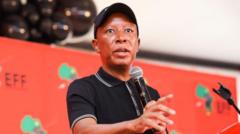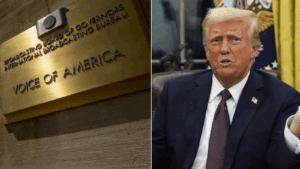This article discusses the incident involving a French scientist who was barred from entering the United States due to opinions expressed about Trump administration policies, raising alarms in France regarding academic freedom.
U.S. Denies Entry to French Scientist Over Trump Criticism, France Responds

U.S. Denies Entry to French Scientist Over Trump Criticism, France Responds
French authorities express concern as a scientist is deported from the U.S. for views on Trump’s policies affecting academic freedom.
A French scientist traveling to a conference near Houston was denied entry into the United States this month after U.S. border officials discovered text messages on his phone criticizing the Trump administration's policies on scientific research. Philippe Baptiste, France’s Minister for Higher Education and Research, articulated his concerns over the treatment of the unidentified academic, stating that such actions jeopardize the fundamental principles of freedom of opinion and academic freedom.
According to Baptiste's statement, the scientist, affiliated with France’s National Center for Scientific Research, was deported after customs officers examined his phone and found “personal opinions” regarding U.S. policies that he had shared with colleagues and friends. Although U.S. Customs and Border Protection permits the search of electronic devices upon entry, the frequency of such searches remains low, with only 0.01 percent of international travelers subjected to scrutiny in 2024.
While the identity of the scientist has not been disclosed, Baptiste has been especially vocal recently about threats to academic freedom in the U.S., as the Trump administration has implemented significant funding cuts and layoffs impacting higher education and scientific research. He urged French universities to be receptive to researchers looking to leave the U.S., emphasizing the importance of Europe as a bastion for research and talent amidst these challenges. Baptiste’s remarks aim to illuminate the broader implications for scientific discourse and collaboration globally, as the friction between political viewpoints and academic freedom continues to rise.























